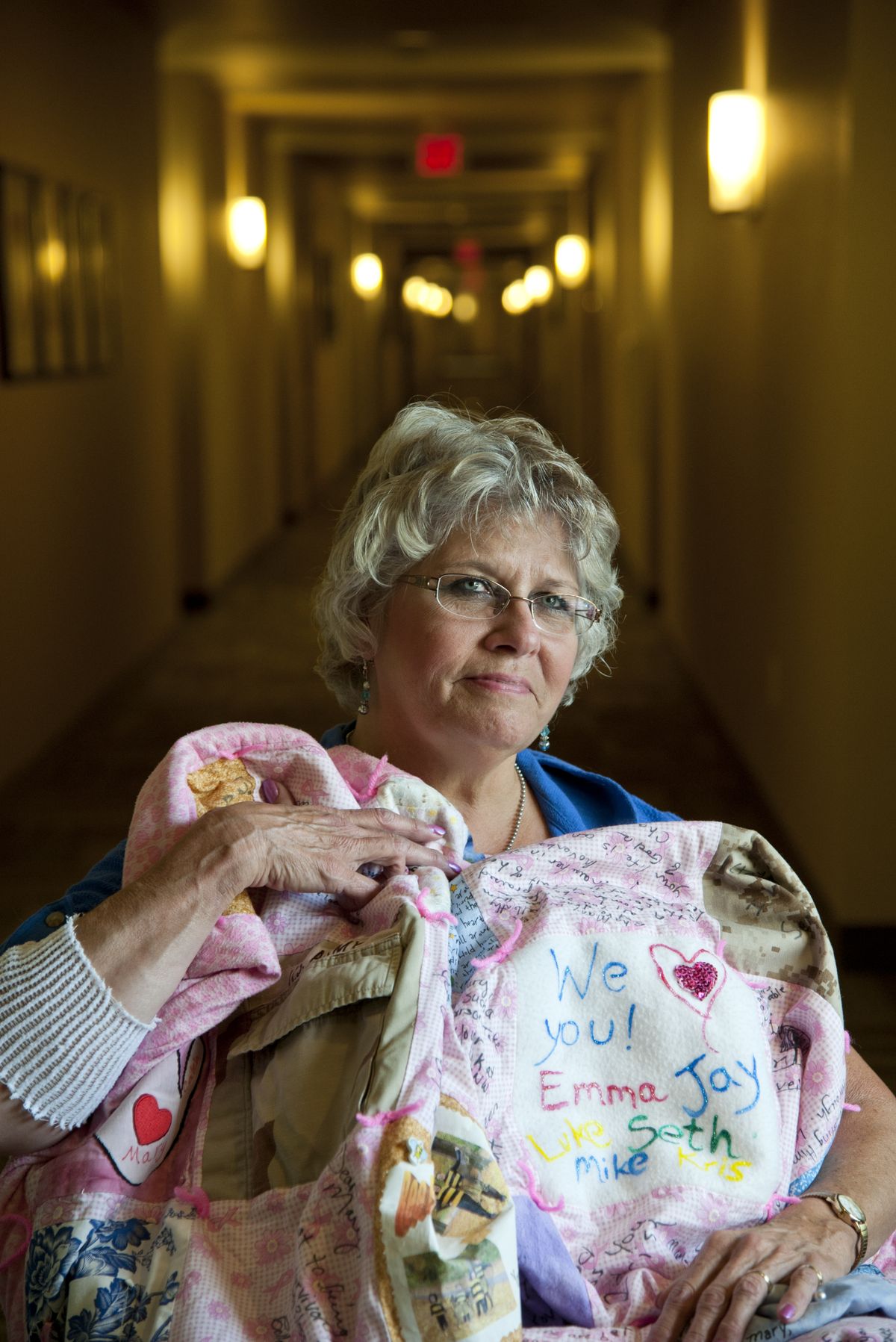Give blood, stop cancer
Next generation of volunteers sought for long-term national study

As a survivor of cancer, Mary Phillips is ineligible to participate in a national study that will search for ways to prevent it.
But she can tell you how cancer can surprise you. It surprised her nearly five years ago, a few days before Christmas.
“No hint, no warning, no nothing,” said Phillips, 64. “I had woken up bleeding. … I went to the hospital, and that was it – stage 4 colon cancer.”
Now, as a volunteer for the American Cancer Society, she’s spreading the word to help the organization’s local branch recruit at least 500 Spokane-area adults to volunteer their blood, time and health histories for a major, long-term study that will examine cancer’s potential causes.
“That’s the kind of data that can change public health policy, change people’s behavior,” said Hugh Severs, executive director of the Cancer Society’s district that includes Spokane.
The Cancer Society is making appointments to enroll participants over five days in September, a process involving a blood draw, a waist measurement and some paperwork.
The American Cancer Society’s goal is to enroll 300,000 research participants across the U.S. by the end of the year for what it calls Cancer Prevention Study 3. The organization’s large-scale research efforts date to 1952, when it launched a study that helped establish the connection between smoking and cancer.
“Our goal is that cancer’s no longer a major health issue in this country, or even worldwide,” Severs said. “Now, if we can do that within the next 20 or 30 years, that’s great. If we can do that within the next five years, that’s great. Time will tell.
“What we do know is if we don’t do CPS-3, we’re going to be that much further behind, and we’ll probably never get there.”
After her family gathered for an early holiday celebration, Phillips’ surgeons removed 18 inches of her colon and 25 lymph nodes. She was fitted with a port that for six months pumped chemo drugs into her body. Severely dehydrated, she said, she was close to death a couple of times.
She continued treatment, motivated partly by a desire to spend time with her nine grandchildren, now ages 4 to 16.
“I don’t ever want any child, anyone, to have to go through chemo like I did,” Phillips said.
CPS-3 aims to continue decades of cancer-prevention research undertaken by the American Cancer Society.
The first Cancer Prevention Study, launched in 1959, involved nearly 1 million subjects and continued to examine links between smoking and cancer, as well as the role of obesity. CPS-2, established in 1982 with 1.2 million participants, looked at smoking, nutrition, physical activity, aspirin, hormone use, genetics and other factors as they related to cancer risk.
CPS-2 is still underway, but the number of participants is dwindling – nearly 500,000 have died since the study started – and their average age is 83.
Working-age adults today face different potential risk factors, such as new medications and a more sedentary lifestyle, requiring a new population to study, said Alpa Patel, the study’s lead investigator in Atlanta.
While the first and second Cancer Prevention Studies mostly examined behavioral factors – “things that you could ask about in a survey” – CPS-3 also aims to use new technology to examine the role of genetics and “intrinsic or internal markers, things you can measure in the blood,” Patel said.
Each CPS-3 participant’s blood will be collected at enrollment. Researchers in other nations have created similar collections of human blood, urine and saliva for analysis. The UK Biobank is the biggest.
“But in the United States, this will be the largest resource of its kind, moving us into the next generation of research,” Patel said.
CPS-3 will continue to examine obesity, but in a population more likely to be overweight or obese “for a good portion of their life,” Patel said. It’ll also investigate smoking cessation, aiming to identify factors that make smokers more or less addicted and effective ways to help people quit.
The study is wide-reaching – the initial health survey is 28 pages long for women – and designed for flexibility. Participants will receive follow-up surveys every couple of years for at least 20 years, adapted as new scientific questions emerge.
With an oversight committee at Emory University charged with ensuring participants’ rights and welfare are protected as the research continues, the study will be conducted by epidemiologists working for the American Cancer Society in Atlanta.
“For many individuals, this is a very small, actionable thing that they can choose to do that can have a profound impact on what we are able to learn about this disease,” Patel said. “Think about who has been touched by cancer, and think about doing this in their honor.”
Spokane resident Jennifer Quaschnick, 34, has already signed up.
Her son, Gabe Quaschnick, was 3 in April 2004 when doctors diagnosed him with Wilms’ tumor, a rare kidney cancer.
Scans found that the cancer had spread throughout his body, including tumors in both lungs.
After removal of the 5-pound tumor that had encapsulated his right kidney, Gabe embarked on nine months of chemotherapy – plus steroids and blood and platelet transfusions to help him recover from the chemo – adding radiation during the last two months of chemo.
Blood tests and CT scans since Gabe’s treatment have found no new cancer. Now 12, he’s preparing to enter seventh grade.
“My son, he’s here, he’s alive,” Quaschnick said. “But there are a lot of really nasty side effects from chemotherapy,” including neuropathy in his hands, decreased lung capacity as a result of scar tissue, and weakened muscle tone.
The study gives her and others a chance to help prevent another child and family from enduring what hers endured, Quaschnick said.
“I don’t like needles,” she said, “but to prevent cancer I will get stuck with one.”